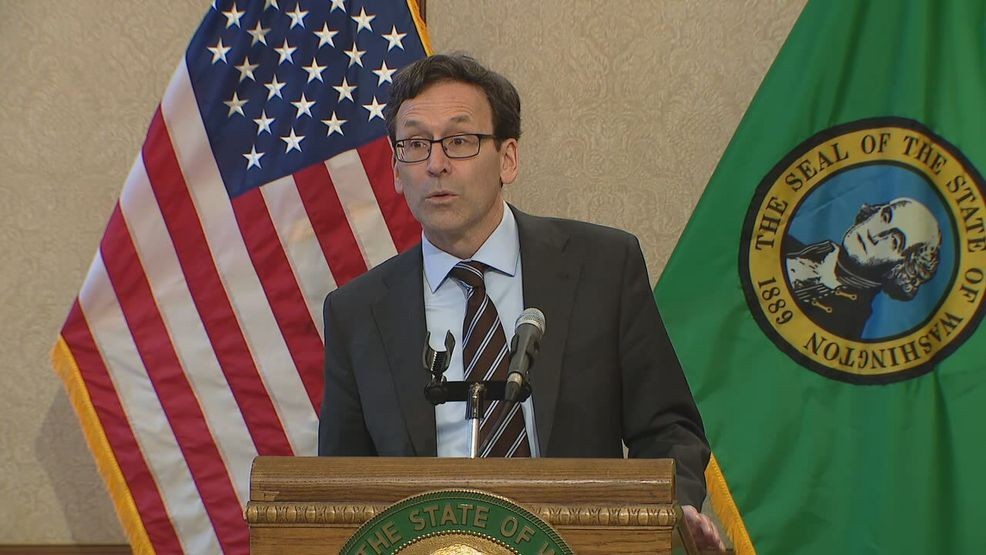WASHINGTON STATE — Gov. Bob Ferguson stood behind a podium for roughly an hour and a half acknowledging he was agreeing to do what he said he didn’t want to just two months ago and significantly raise taxes.
“I said, hey, we’re not going to be able to tax our way out of this. It became equally clear early on in the process that we’re not going to cut our way out of it,” said Ferguson, anticipating the question on the mind of most reporters in the room. “The budget I signed today protects core services.”
But Ferguson also didn’t deny the likely impact on most Washington residents from the $9 billion package, or on the business community from the slew of new revenue streams that include B&O, property, sales and the 6-cent-a gallon increase in gas taxes.
“We have limited revenue options right now. The gas tax, unfortunately, is one of them. Look, no one’s excited about increasing the gas tax, I can assure you,” he said.
RELATED: Tuesday is the deadline for Gov. Ferguson to sign Washington’s nearly $78 billion budget
Ferguson had until Tuesday to sign the budget balancing package and avoid a special session. He did veto parts of five budget bills which eliminate planned studies, work groups, and grants for specific programs.
House and Senate Republicans have long argued the shortfall was prompted by overinflated revenue estimates and new spending on programs. Ferguson had delivered a measured tone on it all through the budget cycle, even earning praise from Republicans for threatening to veto a wealth tax which ultimately killing that idea.
But on Tuesday, those same Republicans blasted Ferguson.
“These new taxes and fees will crush families already battling an affordability crisis and hit employers still trying to recover,” said House Republican Budget Leader Rep Travis Couture of Allyn in a statement.
“Last month, Governor Ferguson told his own party to rein in the tax hikes and shift course. That turned out to be all talk. Today, he gave the green light to a budget that taxes the joy out of Washington, attacks job creators, and worsens our affordability crisis. He laid out five budget principles, including a call to minimize new spending. Instead, he signed off on another reckless spending spree. No tough choices were made. The failed status quo was preserved.”
ALSO SEE: Washington governor signs controversial student rights bill into law
Republican State Senator Drew MacEwen of Mason County said in a statement, “This budget is a major setback for working families, small businesses, and our state’s economic future. At a time when Washingtonians are already grappling with soaring living costs, rising housing prices, and inflation, the Governor has chosen to increase the burden on taxpayers rather than pursue responsible, balanced solutions. These tax hikes could cost families up to $2,000 per year.”
There were no leaks ahead of the bill signing, and Ferguson admitted he kept his decisions close to the vest because “I don’t want to make some big public announcement I’d have to walk back when I learn more about the budget. That was an approach that I thought was appropriate for this, especially my first time.”
Ferguson also sounded pessimistic when discussing the future June revenue projections or how any federal cuts could ultimately impact the situation, stressing this $78 billion dollar budget protects the rainy day fund, and key money for housing, schools, and public safety. He also admitted there could be unintended consequences with the business community and he’s open to adjustments with his supplemental budget this December.
The Governor said he doesn’t want to call a special session to try and adjust before that. “I don’t think anybody’s excited about a special session,” said Ferguson, near the end of the marathon press conference. “Between now and January, if developments happen, look, that can’t be ruled out. I’m not trying to sound the alarm here. I want to be clear,” but he added, “I obviously can’t rule that out.”


